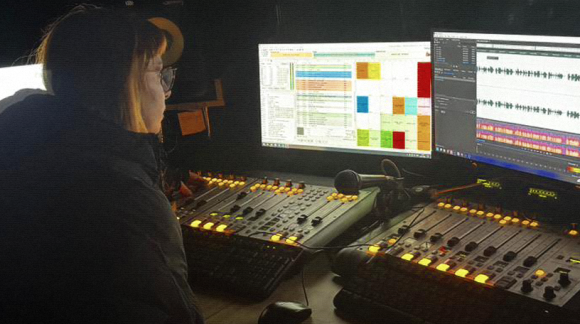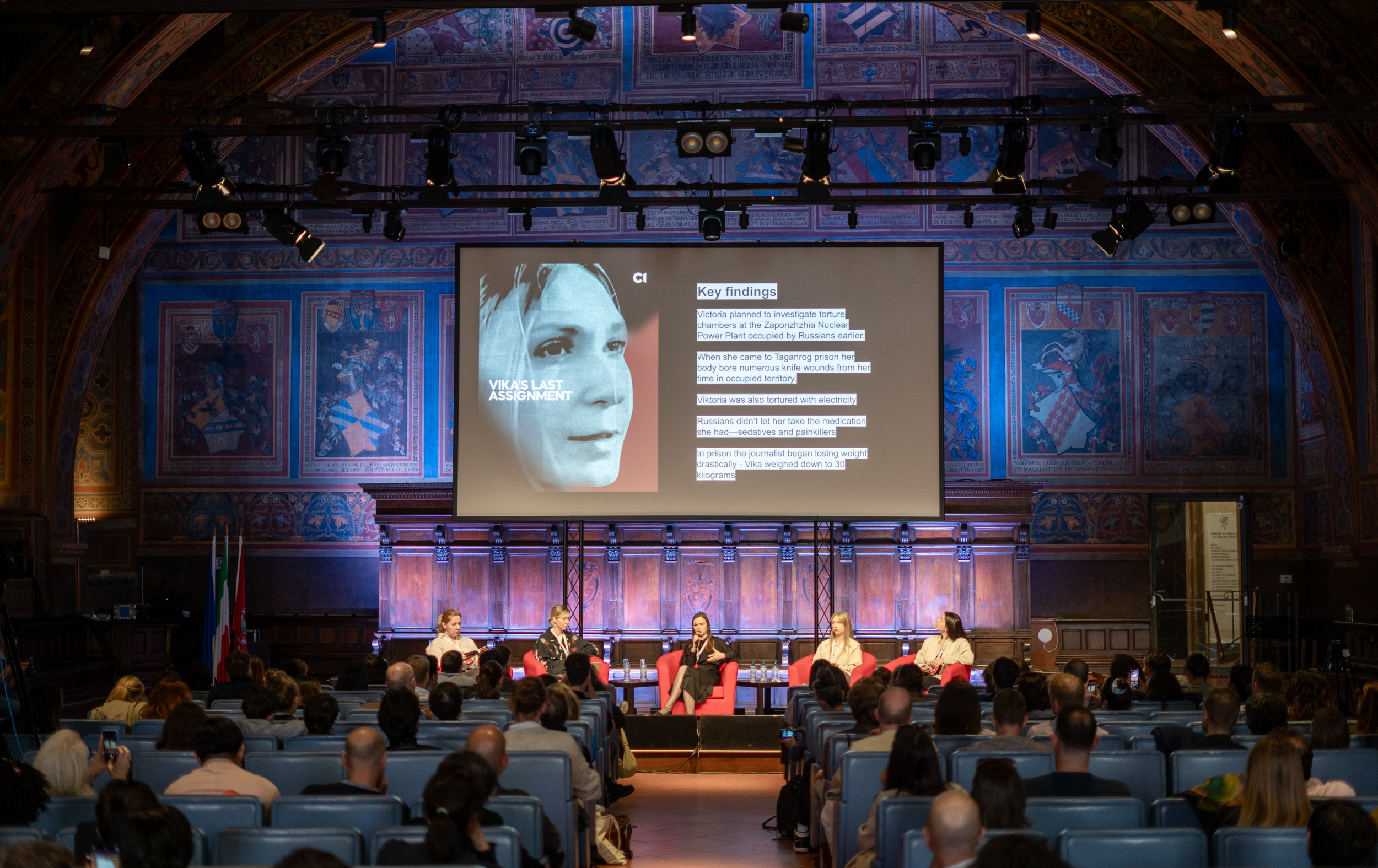
Panel “Captured, tortured, vanished: what it takes to cover the Russian occupation in Ukraine. The case of Victoria Roshchyna” at the XIX International Journalism Festival in Perugia (Italy) on April 12. Screenshot by the IMI
International organizations should put more pressure on Russia and insist on access to the detained Ukrainian journalists to confirm that the media workers are alive, said Oksana Romaniuk, director of the Institute of Mass Information (IMI), at the panel “Captured, tortured, vanished: what it takes to cover the Russian occupation in Ukraine. The case of Victoria Roshchyna” at the XIX International Journalism Festival in Perugia (Italy) on April 12.
The findings of Slidstvo.Info’s investigation into the murder of Ukrainian journalist Victoria Roshchyna, as well as the investigation of her case by Reporters Without Borders were presented at the event. The participants of the discussion discussed Victoria’s fate: she spent over a year as a hostage in Russia. Slidstvo.Info representatives said that she had suffered brutal torture: she was electrocuted, her body had stab wounds, she weighed no more than 30 kilograms, and the prison staff hid her from inspections.
This is why access by international organizations to imprisoned Ukrainian journalists is so necessary, Oksana Romaniuk stressed.
“Right now we have at least 30 journalists who are illegally kept in Russian prisons. We call them civilian hostages. As in the case with Victoria Roshchyna, they were just captured as hostages, and they are tortured. International organizations do not have access to them. And we also have a big question to international organizations as to why they do not pressure and do not insist. I understand that it’s very hard to go to Russia, but we all should press for at least a confirmation that these journalists are alive,” said the IMI director.
At the same time, Oksana Romaniuk highlighted the efforts of those international organizations that support the voices of Ukrainian journalists and have passed a political decision to put pressure on Russia to stop its crimes. For example, last year, the Parliamentary Assembly of the Council of Europe adopted a resolution that included the first specific mention of imprisoned journalists.
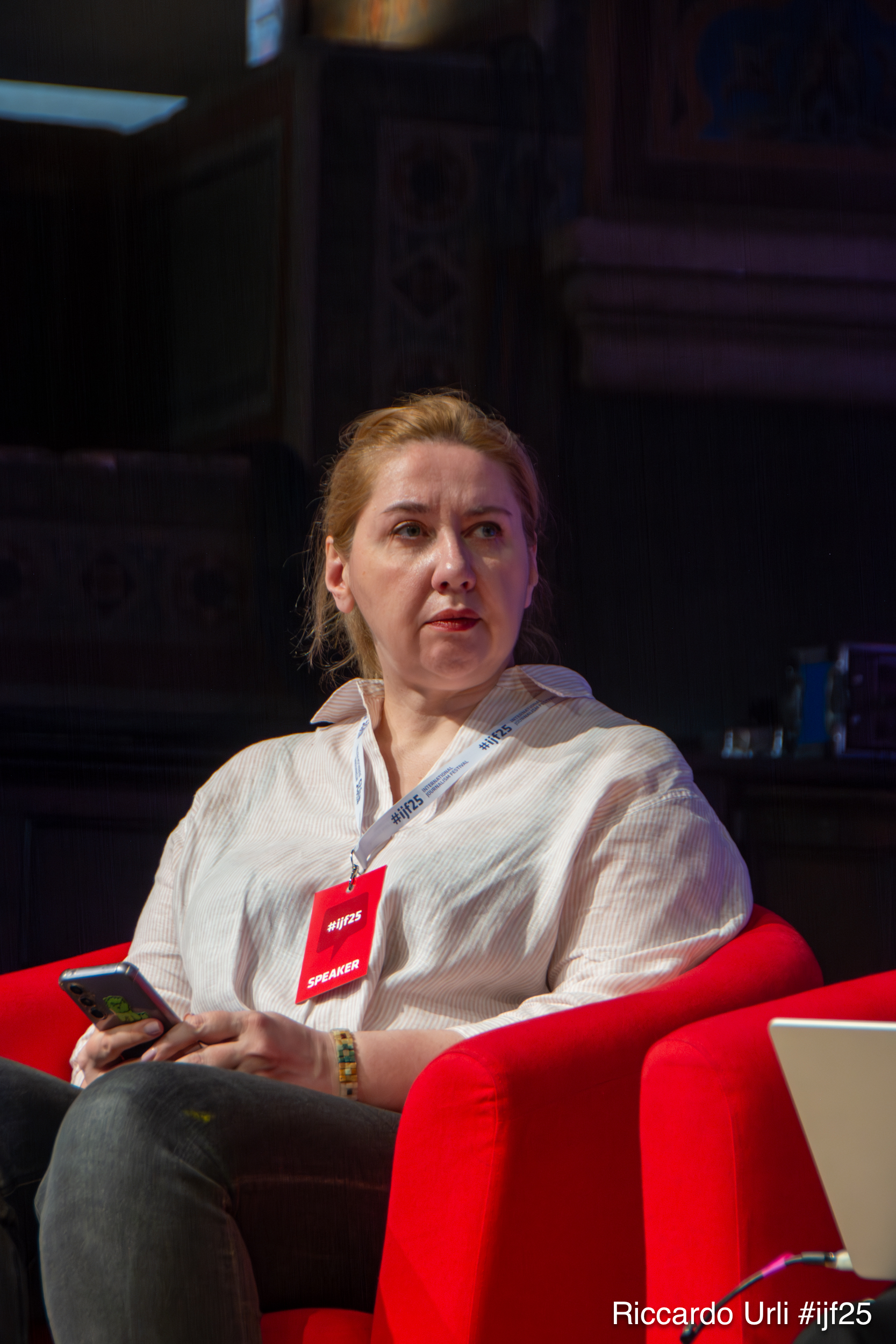
Oksana Romaniuk. Photo by Riccardo Urli, International Journalism Festival 2025 in Perugia
The IMI director spoke about the fate of Bohdan Bitik, a Ukrainian producer of the Italian newspaper La Repubblica, who was ambushed by Russian snipers together with his colleague Corrado Zunino near the Antonivskyi Bridge in Kherson. Bohdan was killed, and his colleague was wounded. Both journalists were wearing identifying badges and “Press” labels. Oksana Romaniuk said that this is a war crime, as it points to a deliberate, targeted act of murder.
“Imagine a journalist dressed in a ‘Press’ jacket, wearing a ‘Press’ helmet, having a camera in his hands. And he is shot by a sniper into his neck. This is what happened to one of our colleagues, Bohdan Bitik,” she said.
The panel was also joined by:
- Anna Babinets, founder and editor of the agency Slidstvo.Info;
- Angelina Kariakina, journalist, co-founder of the Public Interest Journalism Lab;
- Yanina Kornienko, investigative journalist at Slidstvo.Info;
- Pauline Maufrais, regional officer of Reporters Without Borders (RSF) in Ukraine.
None of the Russian media outlets “in exile” investigated the murder of Victoria Roshchyna, noted Anna Babinets, founding editor of Slidstvo.Info. She added that the reason is probably the difficulty and riskiness of such an investigation, as it is easier for the so-called “liberal” Russian media to report on artificial intelligence than to openly talk about the systematic cruelty and impunity of the regime from which they escaped.
“No Russian came to our panel (although there were plenty of “meduzas” of all kinds here) to ask how we managed to investigate the crime that occurred in their country or to offer any kind of help. Not that I was counting on it. But I can’t stay quiet about this yet another instance of Russian quasi-journalists’ hypocrisy, either. We are talking about a brave colleague of ours who was trying to do honest reporting, doing it instead of them – those who chose comfortable ‘exile,'” Anna Babinets said in a follow-up Facebook post.
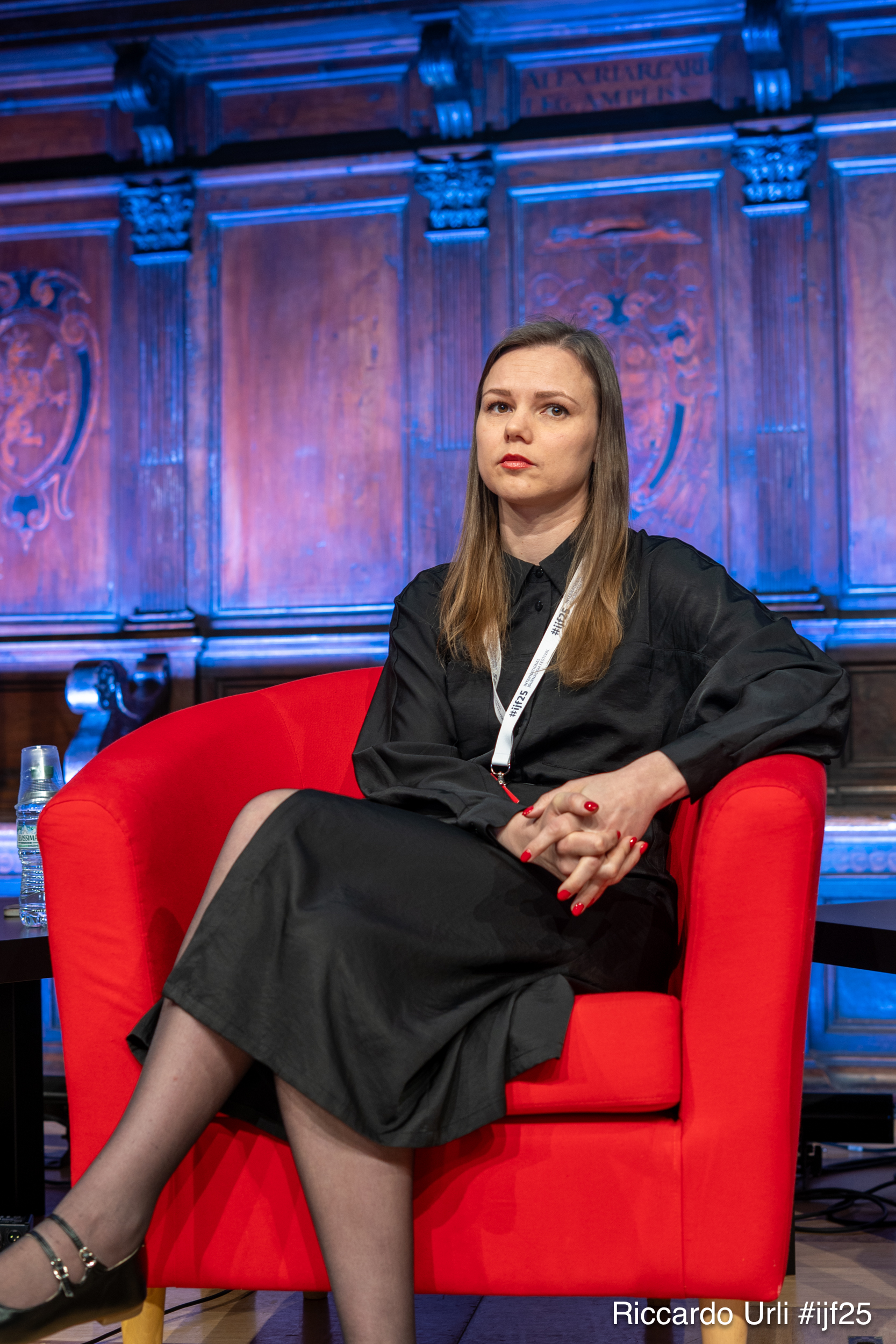
Anna Babinets. Photo by Riccardo Urli, International Journalism Festival 2025 in Perugia
In over a year, the Russians did not bing any charges against Victoria despite their usual practice of pressing fabricated charges under terrorism, espionage, etc. laws against journalists, noted journalist and co-founder of the Public Interest Journalism Lab Angelina Kariakina.
“What makes Victoria’s case special is, first of all, holding her incommunicado, which means no charges. We know that Russia is quite talented in inventing charges of terrorism, espionage, killing civilians. They could have come up with many charges, but they didn’t. For more than a year, there were no charges against Victoria. Knowing in what kind of state she was – I mean, 30 kilograms – and still not letting her go. For us as her colleagues and just humans, no other argument is needed to show that the aim was to torture a person,” said Angelina Kariakina.
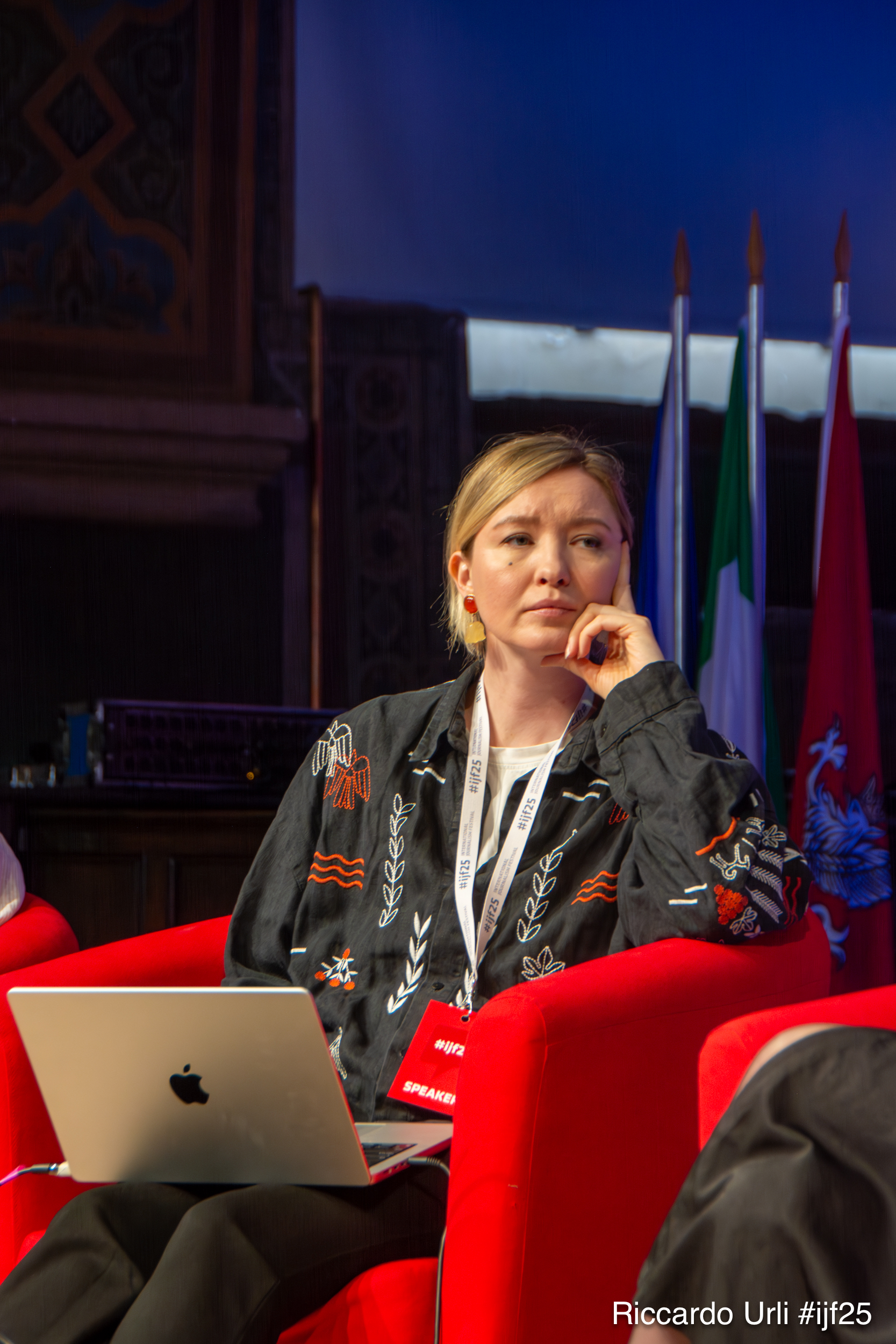
Angelina Kariakina. Photo by Riccardo Urli, International Journalism Festival 2025 in Perugia
Victoria wanted to find out what was happening in the occupied territories, in particular where Zaporizhzhia NPP staff were disappearing to, said investigator Yanina Kornienko of Slidstvo.Info. According to her, Victoria Roshchyna travelled there because Russian journalists were not doing it, and it’s too dangerous for Ukrainian colleagues.
“She was a young, healthy woman before she was placed in prison. We started this investigation a few days later, when we found out that her father had received a message from the Ministry of Defense of Russia that she had died. That was kind of surprising, because she was supposed to be exchanged a week later,” added Yanina Kornienko.
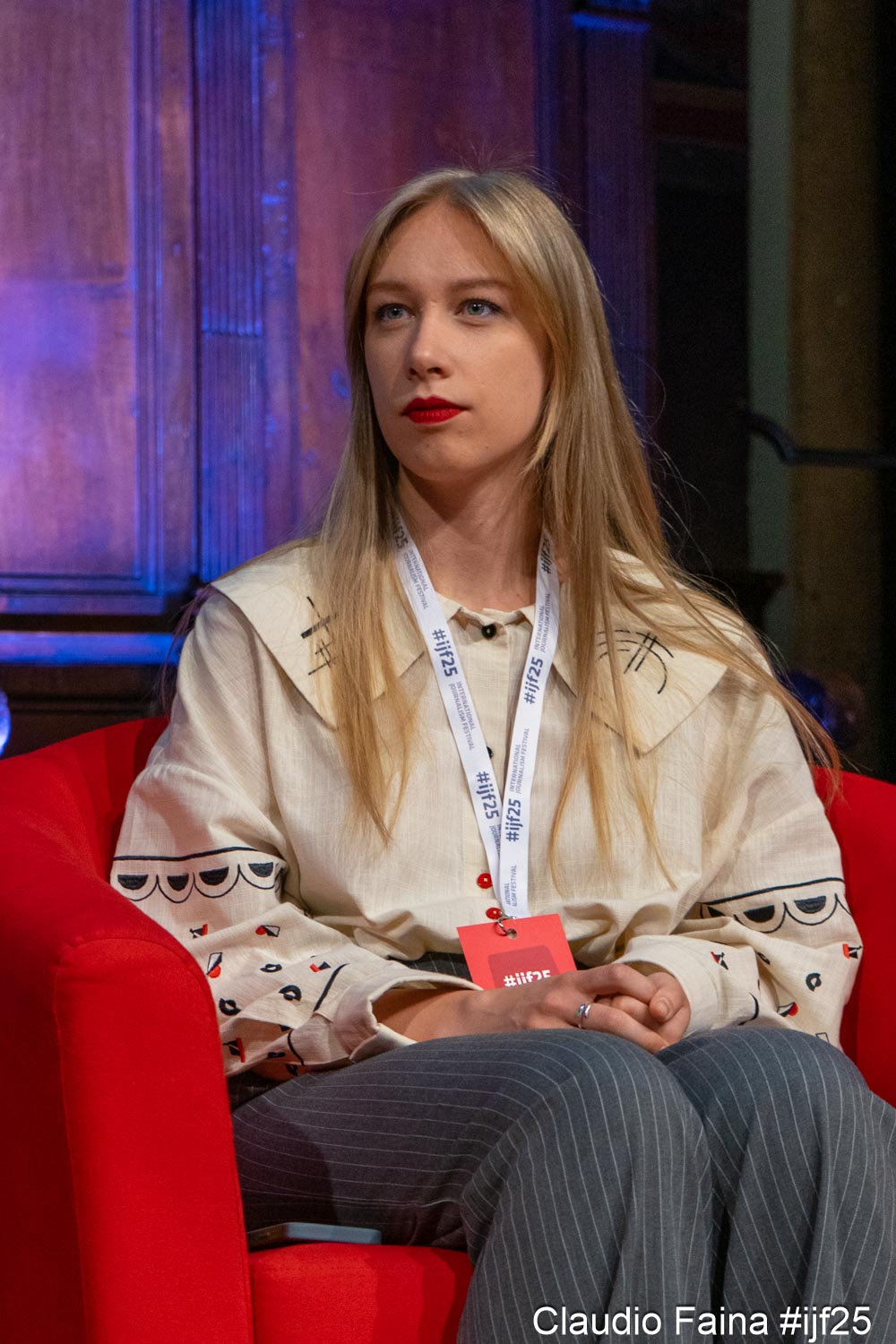
Yanina Kornienko. Photo by Claudio Faina, International Journalism Festival 2025 in Perugia
Investigators into Victoria Roshchyna’s murder keep submitting queries for information but have received no response, said Pauline Maufrais, the regional officer of Reporters Without Borders in Ukraine. She added that RSF would continue to collect evidence for the International Criminal Court and the Ukrainian prosecutors, as Russia must be held accountable for war crimes.
“We will continue to publically ask for information. Because the people who know what happened to Victoria are on the Russian side and they do not answer our requests and they do not give explanations. We are still looking for new witnesses. This is a very complicated case because people who might have seen her are scared, they know the pressure, so even finding a new witness who is ready to speak is a long-term process,” said the regional RSF officer in Ukraine, Pauline Maufrais.
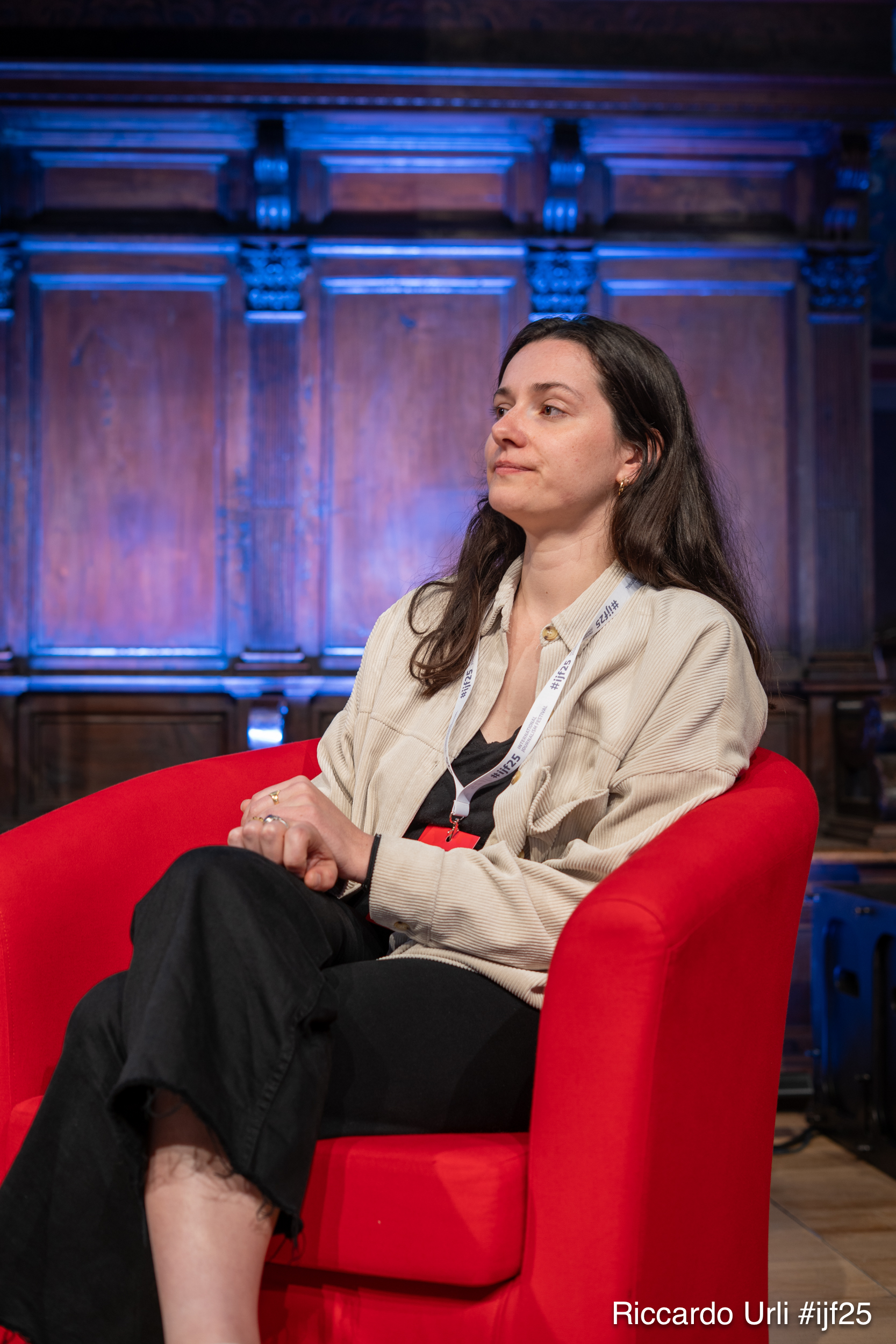
Pauline Maufrais. Photo by Riccardo Urli, International Journalism Festival 2025 in Perugia
During the panel, Oksana Romaniuk reminded that according to the Institute of Mass Information, Russia has killed 102 media professionals since February 24, 2022: 12 were killed while reporting, 90 died as combatants or fell victim to Russian shelling or torture.
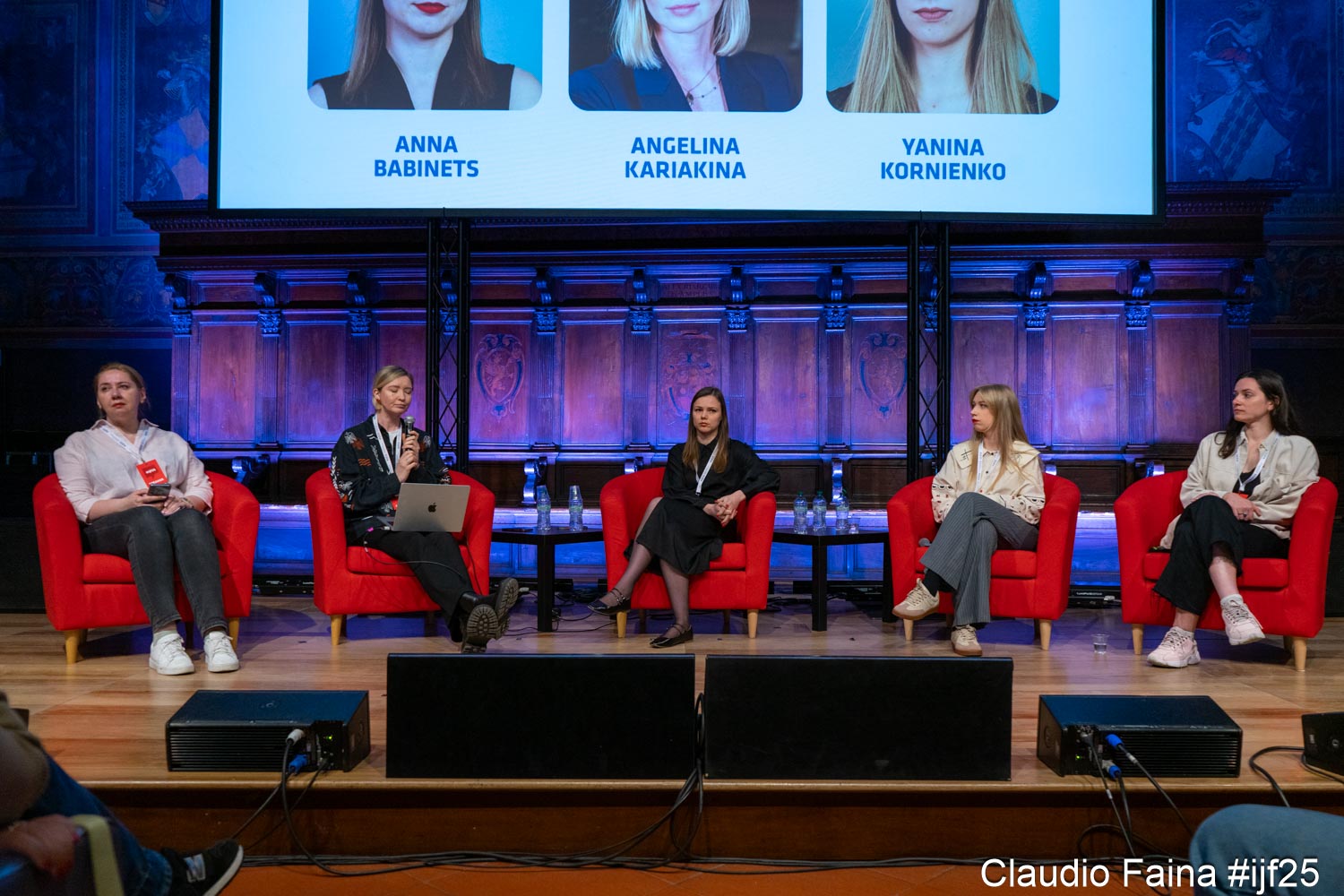
Photo by Claudio Faina, International Journalism Festival 2025 in Perugia
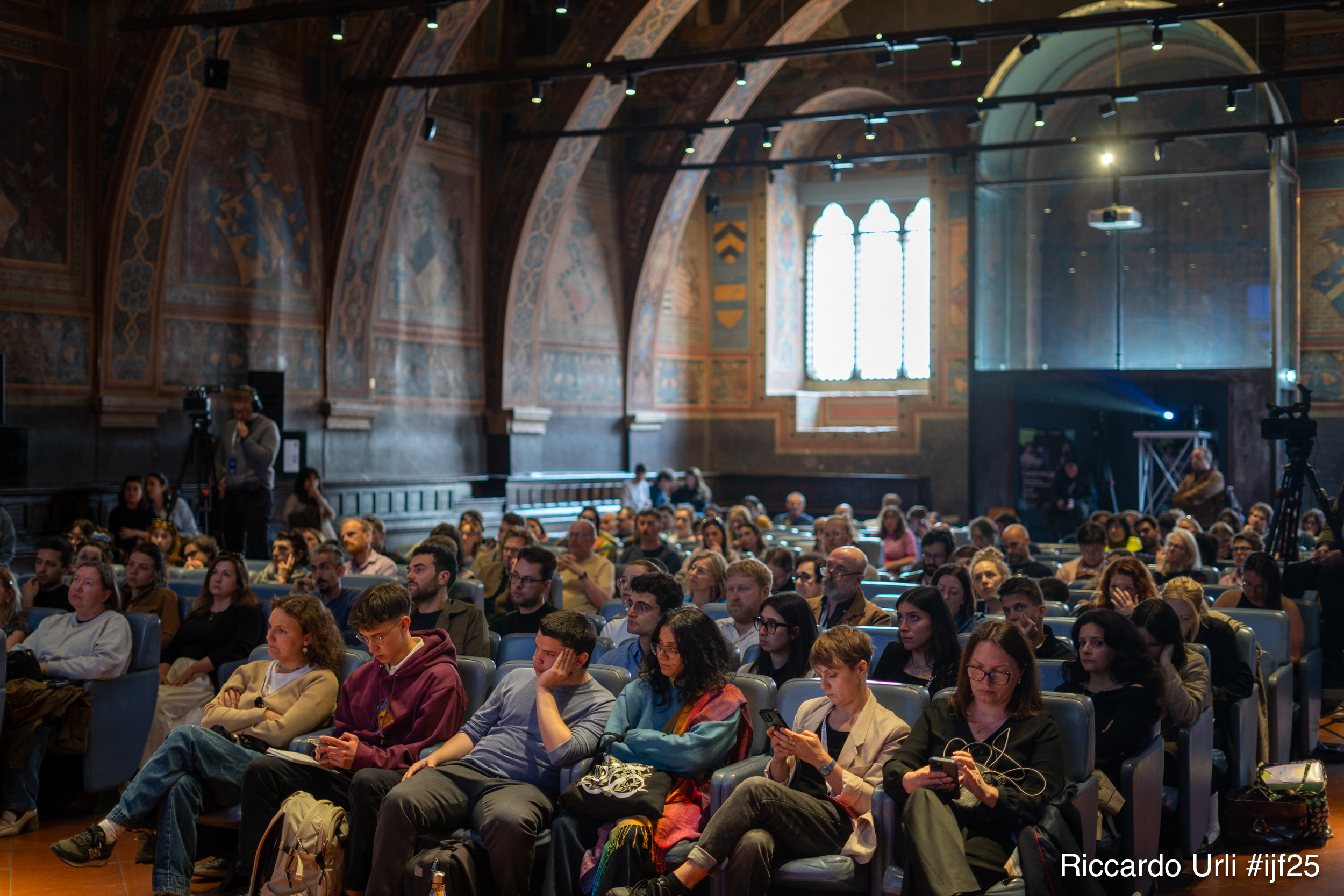
Photo by Riccardo Urli, International Journalism Festival 2025 in Perugia.
According to the Institute of Mass Information, Russia has committed 829 crimes against journalists and the media in Ukraine in the three years and one month since the start of the full-scale invasion.
By Lesya Lutsiuk, Kateryna Adriychuk

